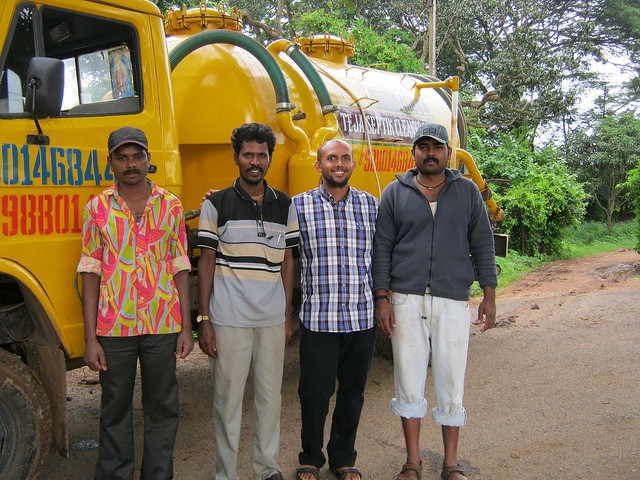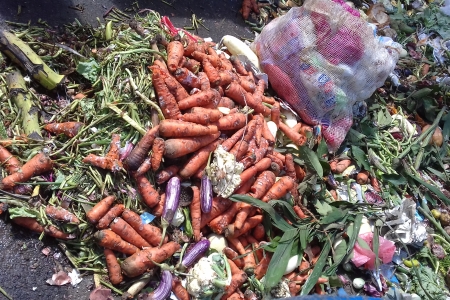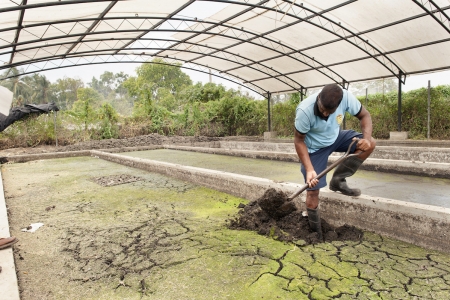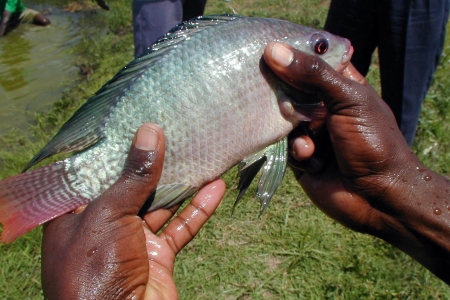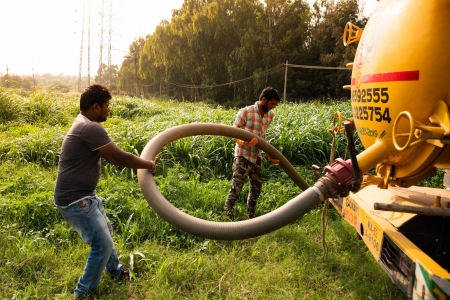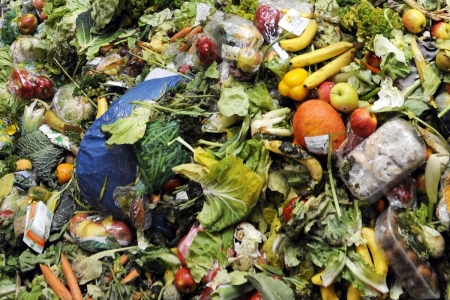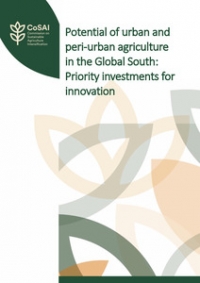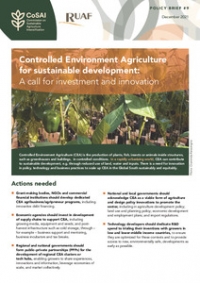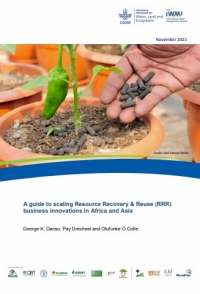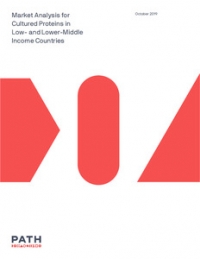The Indian city of Bangalore (Bengaluru) has doubled in size since 2001. Now home to over 10 million people, its rapid expansion has long since outgrown its creaking municipal infrastructure. Most of its residents, for instance, are not connected to a central sanitation system. Instead septic tanks predominate, with the contents being processed in over 1,000 decentralised wastewater treatment systems.
On paper then, this urban sprawl would appear to be the perfect testing ground for new business approaches to waste management. But, as explored in the Stockholm Water Week session Sanitation Business Models for safe resource recovery and re-use, making that a reality is fraught with challenges.
The case for de-centralised, privately run waste management in developing cities is compelling. Miriam Otoo, an economist at the International Water Management Institute, is part of a team looking at business models for safe re-use of wastewater and septage (human waste deposited in septic tanks) across the globe. In her presentation she emphasized the role that resource recovery and re-use (RRR) can play in improving health and protecting the environment. Integrated business models throughout the sanitation value chain can turn waste into valuable resources such as biofuels or fertilizer and save water, thus leading to even broader livelihood improvements.
Most sanitation initiatives to reuse waste have depended heavily on subsidies, remained small or did not survive beyond their pilot phase. A new approach is needed to make RRR solutions viable at scale and protective of public health. The IWMI team is compiling data on over 150 business cases and asking the critical question: Why are some so successful?
The variation in profitability is striking. In Sri Lanka, there are over 100 composting plants. Cost-recovery for these sites ranges from a paltry 3% to 100%. The team wanted to know why there was such variability, said Otoo, adding that there are a wide range of variables from market demand, time to profit and the various health and environmental risks.
The permit Raj
In a partial answer to Otoo’s question, Stefan Reuter of the Bremen Overseas Research and Development Association (BORDA), related the organisation’s experiences of trying to set up a wastewater treatment initiative in Bangalore. Operating on the principle that “what will not be maintained should not be built”, BORDA looked at approaches that did not rely on centralised treatment plants. These rarely attract the attentions of India’s engineers, who are generally lured by the far more glamorous world of spiffy new buildings and imposing public infrastructure.
The technology is well established, however, and the team were hopeful of success. But progress was slow. In part, said Reuter, this has been due to the maze of regulation they have been forced to negotiate. At least seven national ministries are involved in regulating various aspects of the sector, plus 4 technical wings of ministries, the state government, various parastatal organisations and local government bodies. There are nine separate pieces of legislation regulating the sector and a whopping 43 different legislative and policy guidelines must be addressed.
Some of the red tape, says Reuter, is designed to protect the livelihoods of current service providers who are traditional manual scavengers. Their work is highly risky as it exposes them to human waste. This creates contradictions for more organised RRR businesses for whom risk control is a vital consideration.
Success – it’s a gas!
When the authorities get behind RRR, however, the results can be impressive. Regina Dube of GIZ spoke about their experiences setting up an organic waste and wastewater fermenting plant in Nashik, Maharashtra. The site produces bio-gas which is a valuable fuel in energy starved India.
The original plan has been to set up the plant in Delhi, but they soon discovered that actually getting hold of organic waste would be difficult. Major hotels in the city auction their food waste to the highest bidder and it usually ends up as fodder for peri-urban piggeries.
But the smaller city of Nashik was more supportive. Again bureaucracy was a challenge. Unending rounds of elections for local councils, for instance, lead to loss of impetus as carefully nurtured contacts were lost, and new relationships had to be established.
But waste collection was already well organised. €1 million was invested and the plant is now running successfully producing 3300 Kw of energy per day. This is not spectacularly profitable, but does save the municipality considerable sums on collection and transport of waste, and in avoided costs for dealing with septage.
As the world urbanises at breakneck speed, RRR approaches to waste management will become ever more critical. The success stories are already out there, but rapid expansion is urgently needed. Legislators take note!
A video of this session is available at: https://www.siwi.org/news/tune-into-this-weeks-seminars-live-and-on-demand/



